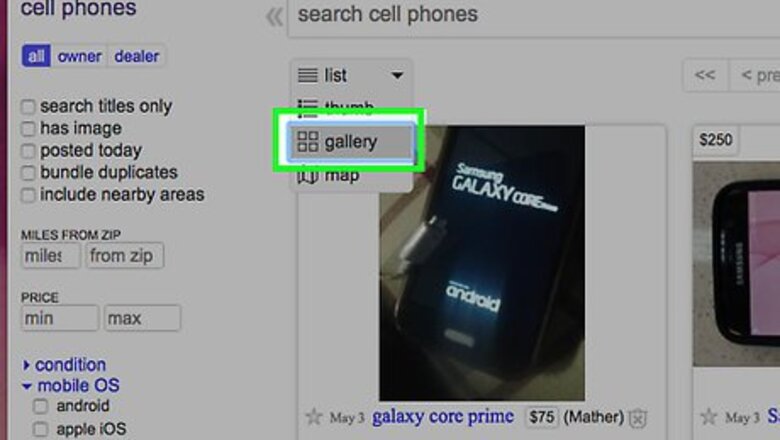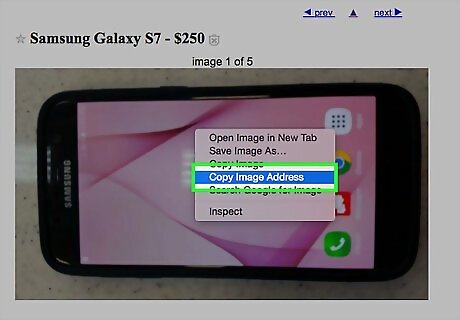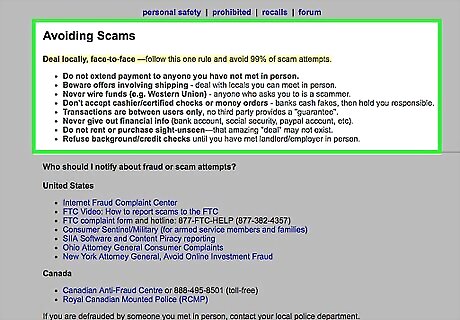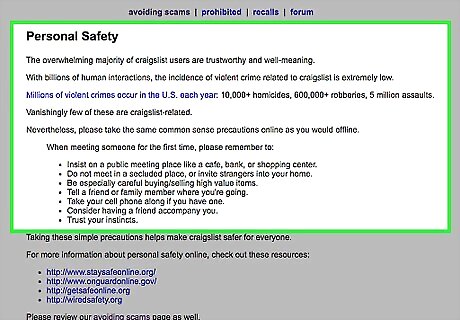
views
Spotting suspicious sales

Prioritize posts with pictures over text-only posts. If you are interested in a non-image post or would like more details, contact the poster but do not make any offers until you are fully satisfied. If they don't get back to you, look for something else.

Check whether the seller has downloaded the pictures from the internet. Scammers will often download pictures from the internet to use in their ads. You can use images.google.com to search for this. Copy the link to the image in the add (right click). Go to images.google.com and search for that image url. Check which sites are returned and whether the seller took the picture themselves. If the image is original, then it should not appear on any other website, but if you see ads trying to sell the same object in Russia, Nigeria, etc, then the ad is probably fake.

Have some knowledge of what the item's usual price is. This is more common for renting an apartment or buying a car over Craigslist. If you're not sure, browse through newspaper classifieds, other Craigslist posts, use the Kelley Blue Book for vehicles, or ask friends for a reasonable price range for that specific item.
Making safe payments

Search and browse within your own region. This will give you and the seller the opportunity to meet in person.

Try to exchange in person instead of mailing money. Unlike E-Bay, Craigslist is not responsible for transaction mishaps. This means, if you send money to someone, you can't report it to Craigslist if you don't receive the item that you were paying for. Any reference to Craigslist that says "buyer protection" or "certified seller" is bogus.

Insist on cash. Fake checks and money orders are common, and banks will hold you - not the seller - responsible. Never wire money to anyone under any circumstances. Most payments made by wire transfer are fraudulent.


















Comments
0 comment